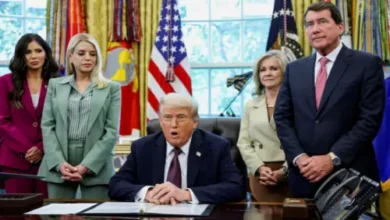Modi’s Fascist Regime Unmasked by International Publishers
The law named the Unlawful Activities Prevention Act is considered to have its roots in the British colonial era

The student activists Natasha Narwal and two others were imprisoned in May 2020 under anti-terror law of the Indian government led by Narendra Modi which is being questioned by courts.
The law named the Unlawful Activities Prevention Act is considered to have its roots in the British colonial era.
New York Times reported Natasha Narwal and 18 others had cases registered against them for instigating riots in protests against divisive citizenship law enacted by the Modi government.
Three including Narwal were taken into custody by the police and they spent 10 days in solitary confinement.
The court ruled the protesters were exercising their democratic right but the police framed fresh charges including attempted murder, terrorism, and organizing protests that instigated deadly religious violence.
“Ms. Narwal, 32, who has said she is innocent, was returned to her cell”, New York Times reported.
Narwal waited 6 months before she was granted her first bail hearing but the prosecutors filed an 18,000-page charge sheet.
This took 30 hearings spanning 6 months for the Delhi High Court to process.
Read Also
Dr A Q Khan Successfully ‘Duck and Dodge’ Mossad
A ‘Bisexual’ Superman To Save Earth in New Series
The Modi regime had amended the law in 2019 and allotted more powers to the government to book people on terrorism charges.
The law keeps the alleged offenders in jails for years before their trials begin.
Poets, politicians, and even a Catholic priest have been imprisoned under the controversial law which even the courts are calling into question.
There have been more than 8,300 arrests under the repressive anti-terror law in the last five years, official data said.
From 2016 to 2019, only 2% of cases registered under the law resulted in conviction but people are still jailed for years before their trials are commenced.
“It appears that in its anxiety to suppress dissent and in the morbid fear that matters may get out of hand, the state has blurred the line between the constitutionally guaranteed right to protest and terrorist activity,” the Delhi High Court said during a proceeding in June and granted bail to the activists.
The high court had expressed fear that the democracy will be in danger if such censorship gains popularity.



